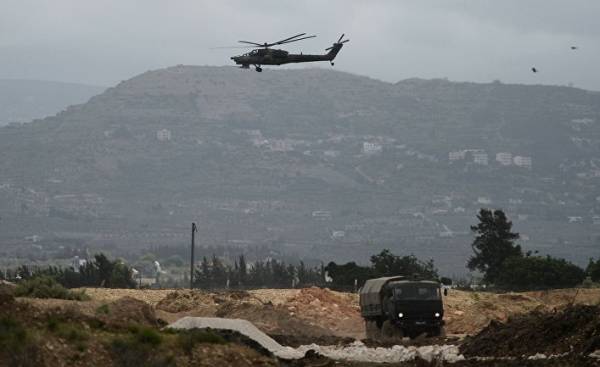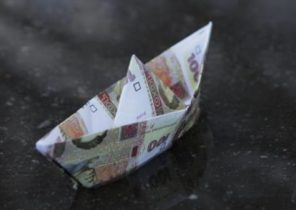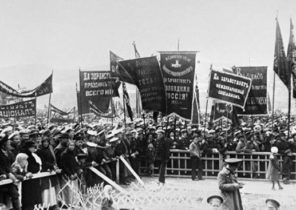
After six years of bloody fighting that devastated much of the territory of the country and made the split in its society, the position of Bashar al-Assad in the Syrian conflict has seriously strengthened due to Russian military intervention and the strong support of Iran. The capture of Aleppo marked the turning point in the war and forced the militants to retreat to Idlib in the North and Dar in the South, where they are now awaiting a final offensive by government troops and their allies.
While on earth remains a fragile cease-fire, the fourth round of negotiations in Geneva ended in a convergence of the official authorities and the heterogeneous opposition on the action plan for the transitional period, which should be put an end to the war.
The proposal is based on the so-called “four baskets” of the special representative of the UN Secretary General to Syria Staffan de Mistura (Staffan de Mistura): the formation of a coalition government, the elaboration of a new Constitution, holding parliamentary and presidential elections and coordination of the fight against radical Islam. One would assume that there is nothing new under the sun. Indeed, in the first round of Geneva talks, held five years ago, was offered a similar road map, based on the formation within six months of the coalition government, endowed with full authority, and holding within eighteen months of free elections under supervision of UN representatives.
The main difference lies in the fact that Russia and the U.S. is ready to coordinate our actions on Syria. After the arrival of Donald trump in the White house, a new climate of understanding, through which coordination of further steps on the ground. While Russia got the green light to hold talks in the Kazakh capital Astana, where she presented a draft new Constitution of Syria, the United States as if inclined to the Russian settlement plan, provided that he will stop the war, will bring to the region some stability and be done with nightmares of ISIS. Only in this light can be regarded the recent meeting of chiefs of General Staff of Russia, USA and Turkey on the issue of sending new U.S. troops, which will prepare the offensive on Raqqa.
The main benefit from this emerging technology will get Bashar al-Assad. The probability that he will stay in power, is growing every day, as trump and Putin as a top priority has identified the fight against Islamic radicals. It actually means the acceptance of the claims of the Syrian regime about how there was no popular uprising with the requirements of civil and political freedoms, and the armed insurgency led by Islamist factions. During a recent interview with Google News Assad even met a presidential decree trump to ban the entry of Syrians into the United States in connection with the presence of terrorists among the refugees. In the interview Assad also said that Syria would welcome the dispatch to that country of American troops to combat terrorism that can be seen not only as a step towards a new occupant of the White house, but also as an indicator of how far are willing to go to the Syrian ruler, to maintain his power.
In such circumstances Russia and Iran will never agree to sacrifice the head of Assad, whatever they offered in return, especially when you consider that both countries believe a war has already been won and think about how to divide the spoils. It is no secret that Moscow and Tehran plan to divide Syria into zones of influence for long-term promotion of their interests. Thus, they will be honored for his Herculean efforts to save the Assad regime.
In January of this year, Russia signed an agreement with the Syrian government that the Russian Navy will use the naval base of Tartus in the next 49 years. This is the only base of the Russian fleet in the Mediterranean sea. Moscow also took advantage of the situation to equip the air base in Latakia Hamim. In addition, the Russian troops stationed in Syria, will enjoy benefits similar to those that had the Americans in Iraq. They will have full immunity to the acting civil legislation. Recall that in December 2013 the Russian company “Soyuzneftegaz” signed a lucrative 25-year contract to develop oil and gas reserves discovered on the Syrian coast. According to various estimates, it could be one of the largest gas fields in the world.
Iran, for its part, also hopes to get a piece of the pie for the help provided. We are talking about sending 65 thousand fighters from among the Iranian, Lebanese, Iraqi, Pakistani and Afghan Shiites, who outnumber the militants of ISIS (a terrorist organization banned in Russia — approx.ed.) and about the loans in the amount of 6.6 billion dollars, half of which is used to pay for oil purchases. Among signed the agreements one should mention the new cellular operator, which part of the profits will be transferred to the Fund of assistance to relatives of thousands of Shiite fighters killed in the war. Iran intends to develop for 99 years rich phosphate mines near Palmyra, and to equip the port on the Mediterranean sea, perhaps in Baniyas. He intends to export Iranian oil pipeline with a length of 1,500 kilometers, which will take place on the territory of Iraq and Syria. The authorities of both countries are under the care of Iran. The proposed construction of the pipeline will cause a severe blow to Saudi Arabia — the main enemy of Iran in the region as it will strengthen the Shia arc, extending from Tehran to Beirut, and would allow Iran to export its oil to the European Union on very favourable terms. Negotiating the signing of major agreements on rebuilding the country, which are claimed by the leading Iranian company for the construction of infrastructure facilities.
The creation of zones of influence and the subsequent partition of the Syrian trophies between Russia and Iran are directly connected with the conservation authority of Bashar al-Assad. That is why the talks in Astana is more focused on the integration of the opposition to this new scheme than the creation of conditions for possible political changes that might jeopardize the interests of Russia and Iran.







